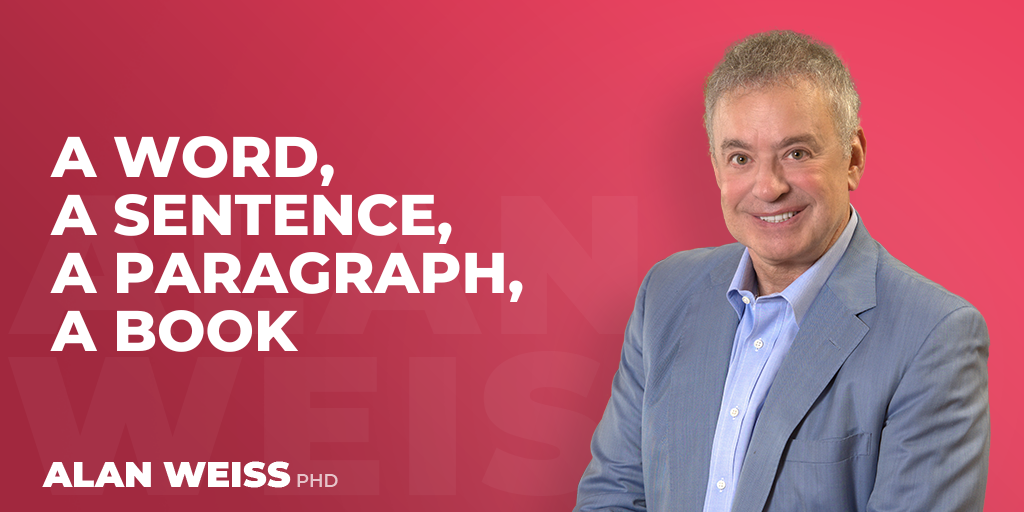Summary of Thought Leadership Workshop Activities
(This is a summary of just one day of my Thought Leadership Workshop currently underway at The Breakers in Palm Beach. The notes are from Andrew Hollow, attending from Australia, who is a member of the Mentor Hall of Fame, and who posted these on AlansForums.com.)
Thought Leadership Summary by Andrew Hollo
Today we had David Maister join us for the afternoon, so these points combine Alan’s and David’s sessions:
1. If you meet resistance, don’t just give up, you have to make your point MORE strongly: either the idea, its instantiation (the conversion of an idea from the abstract to the concrete), its monetization or its exploitation.
2. The shortcut to determining whether my TL offers value is asking: (i) what’s a condition that needs to be improved? (ii) what’s the need that I can create? and (iii) what’s my response to this?
3. Focus my TL on my great clients. Then, my past clients. Next, prospects, recommenders and knowledgeable strangers.
4. Success trumps perfection (yes, again!) – From Alan: “People don’t examine a body of work closely; all it does is builds credibility”
5. A TL at the top of his/her game distills an accumulation of tested, repurposed, accessible IP and earns the right to express it didactically and assertively (viz. “The Consulting Bible”)
6. From David M:
– “Forget the big piece (i.e., the book). Write articles. After a year or two you’ll have 20 – 30 pieces which have been widely distributed and which you can assemble”
– “TL is not about originality; it’s about being the person they want to speak to about a topic”
– “A TL writes as if THIS is how he’s (already) running his life”
– “Train people to get used to me as a source of ideas”
– “Get a reputation as someone who shares content, not as someone who obsessively keeps ownership”
– “Tempt and seduce: give them (your audience) somewhere to go”
– “If you’re doing ANY marketing in consulting, you’re an idiot” (e.g., building databases of prospects is nearly always a less effective substitute for actually LISTENING to clients, preferably current clients with unmet needs)
7. David referencing Neil Rackham: As a Thought Leader, you won’t get directly to ‘powerful people’. Instead your TL will reach ‘receptive people’, who will put you in touch with ‘troubled people’ (those “whose ox is being gored”) who can help you reach ‘powerful people’.
8. The most potent TL is “what no-one helps you learn” (In David’s case, this was how to sell – when you have an over-developed intellect but an under-developed personality i.e., many accountants, lawyers and consultants).
9. You don’t where opportunity will come from. So write. And speak. And do both a lot. And don’t worry WHICH talk, or which article, or which book will generate the big lead.
10. Thought Leaders attract people who are attractive to other people.
11. Practice performing as a Thought Leader: high energy presentations; self-deprecation balanced with healthy ego; engaging and interactive with your audience; seemingly limitless content.
12. TL is as important as actual consulting: “What you do with your billable time is your income; what you do with your non-billable time (i.e., TL) is your future”
Two-thirds of the way there – another great day tomorrow.
Over and out.
Andrew Hollo




